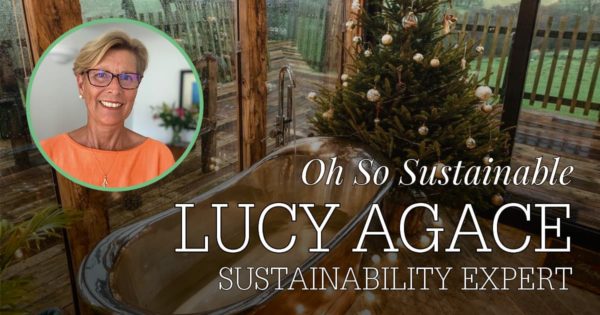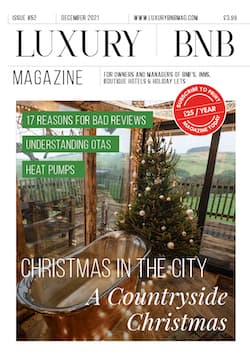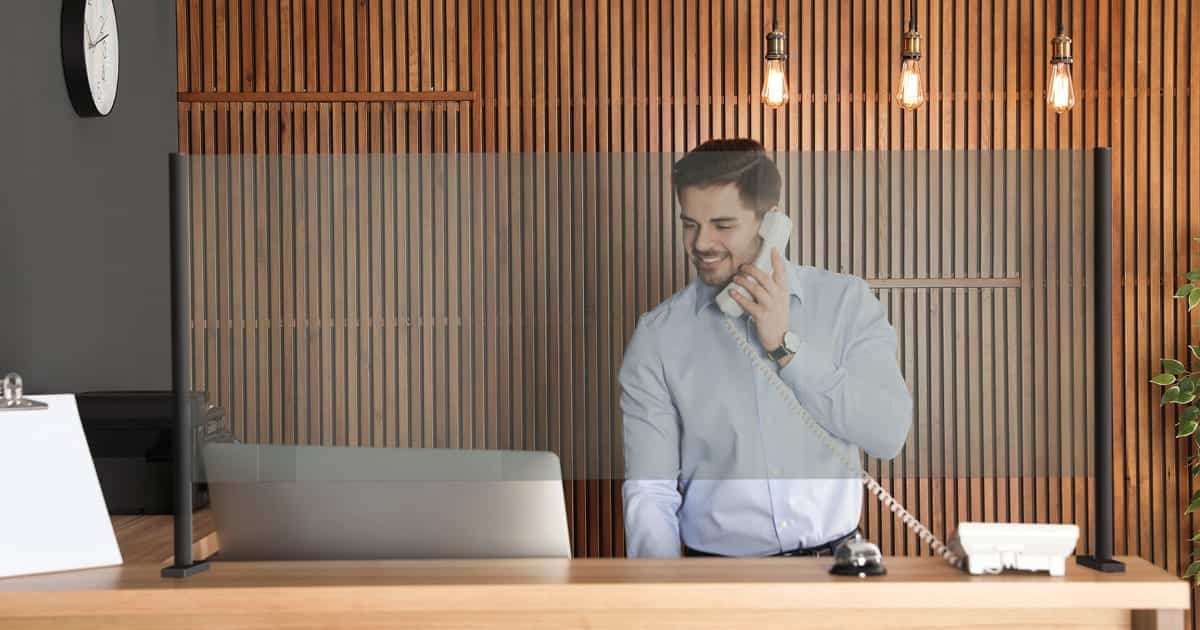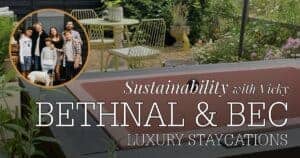
I’m sure we can all agree we are living in extraordinary times, not least the pandemic, but the climate crisis looms ever nearer as we move into 2022. A sustainable business is more important than ever.
COP26 has just finished and everyone can see there’s an urgent need to make serious behavioural changes, both at home and in our business operations, to effectively mitigate a climate disaster.
The public appetite for businesses to be more ethical, offering products and services built on sustainable foundations, is gaining huge momentum and consumers are opting for responsible or sustainable alternatives in all lifestyle areas.
Consumers are also looking for proof and authentication of such claims, and so they should; There are too many fake claims, called ‘green washing’, which the government is taking steps to eradicate next year. Wouldn’t it be easier to find proof with a simple, linked badge clearly displayed on your website’s landing page?
This is an achievable aim Travel is no exception. Booking.com’s 2020 customer survey found that demand for sustainable accommodation is growing year on year: 82% of global travellers identified sustainable travel as important to them.
More needs to be done to help travellers fulfil these aspirations.
Embracing sustainable practices in a transparent and honest way will help you to attract the enlightened traveller who is looking for accommodation that aligns with their own ethical standards and provides a low impact stay.
Let’s take a moment to explore sustainability and how it relates to the accommodation business.
Sustainability is associated with many definitions, for example:
- ESG (Environmental, Social, Governance)
- PPP (People,Prosperity,Planet)
- Eco-friendly
- Green
…and so on.
But don’t confuse sustainability with ‘going green’ or ‘eco-friendly’; they are different.
In a nutshell sustainability means: “Operating a profitable business but not at the expense of the environment or people”. Whereas ‘going green’ or ‘eco-friendly’ doesn’t take into account the people, social or governance side.
In order to make a big positive impact, a complete holistic approach is best, looking at the entire BnB operation using best practice sustainability values.
This is a step by step process of various actions and modifications, some small, some bigger. It doesn’t mean closing and a re-model. During the process you need to look at how you can best communicate these efforts to guests whilst at the same time making it easy for them to comply.
A successful transition requires guests to participate and understand your thought process and motivation. This underlying theme to increase public awareness is hugely important, it not only assures delivery, but it will make your life easier and save you money.
We can’t underestimate consumer choice/demand.
Andrew Marr interviewed Greta Thunberg ahead of COP26, and she said: “Consumer demand is still widely required to affect the changes needed in the time limits we have and to put more pressure on those in positions of power to make the right decisions”.
I will, over the coming issues, provide some useful information about responsible practices and insights into how you can make the best choices that have the most effect. Some of you may already be doing some of these but I will be taking a blanket approach so that no one misses out.
The United Nations Sustainable Development Goals (UNSDG – sdgs.un.org/goals) objectives may seem like they don’t apply to your business, but they can and do. Most, if not all, sustainable criteria for travel, tourism and business guidance and certifications is drawn from this set of 17 goals.
Alone they can seem daunting and unclear which is why organisations like the Global Sustainable Tourism Council (GSTC – gstcouncl.org) have developed structures for companies like mine to help businesses like yours deliver these goals.
The 17 goals are a universal call to action to eradicate poverty, protect the planet and ensure that all people enjoy peace and prosperity.
I use these goals as standards in my RRS certification program and here are a few examples that I’ve split into two categories, Inside and Outside.
Inside – Clearly labelled recycling, water filters and removal of single-use plastics onsite.
Outside – zero pesticide use and onsite composting.
Outside these two categories however, probably the most important action, if you haven’t done so already, is to switch to a green/clean energy provider. I realise that many of these supply companies have recently ceased to trade but some stronger bigger suppliers still remain. By increasing demand for renewable energy it puts pressure on the government to make the right decisions and invest more in renewables.
We have only touched the surface so far. I haven’t addressed CO2 emission reduction, paying a living wage or supporting local entrepreneurs. If you don’t wish to wait I am available for direct contact should anyone want more information.
Experience has shown that guests respond well when they can see BnB owners have gone out of their way to provide safe, responsible, luxury properties that maximise the positive impacts and minimise the negative ones.
I promise to nudge and guide you to become leaders in your sector, stand out above your competition and join the ethical movement doing the ‘right thing’ for people, the planet, you and the all important guests.
Read this and other great stories in the December 2021 issue of Luxury BnB Magazine.




